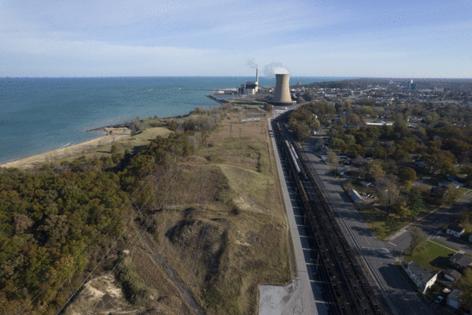Supreme Court says EPA can force coal-fired power plants to cut carbon pollution 90% by 2032
Published in Political News
WASHINGTON — The Supreme Court on Wednesday cleared the way for a climate-change rule adopted by the Biden administration that would force coal-fired power plants to cut their carbon pollution 90% by 2032 or shut down.
By a 7-1 vote, the court rejected a series of emergency appeals from Republican-led states and the coal and electric power industries.
The decision comes as a mild surprise because the court’s conservatives have repeatedly blocked the EPA’s more ambitious climate change plans.
The decision is a victory for environmentalists and the Biden administration, but not a final ruling on the legality of the new regulations. It signals the court’s majority leans in favor of upholding the rules.
Justices Clarence Thomas dissented. He would have put the EPA on hold while lower courts considered it.
Justices Neil M. Gorsuch and Brett M. Kavanaugh said in a short statement that the challengers had a strong claim, but there was no need to block the regulation at this early stage.
Justice Samuel A. Alito Jr. took no part in the decision.
EPA says power plants are the second largest source of carbon pollution, behind motor vehicles.
It was the third time in a decade that the court’s conservatives were asked to block the EPA and Democratic presidents from enforcing ambitious new rules to restrict carbon pollution from power plants.
The EPA announced its latest anti-pollution rules in April and said carbon-capture technology would allow coal and new gas-fired power plants to “achieve substantial reductions in carbon pollution at reasonable cost.”
But state attorneys for West Virginia and 26 other Republican-led states sued seeking to block the rules from going forward. Joined by the electric power industry and the U.S. Chamber of Commerce, they argued carbon capture technology was costly and unproven for large power plants.
“These (carbon capture) systems are not ready for prime time,” they told the court.
They also contended the nation’s power grid would be endangered if fossil-fuel plants were forced to shut down.
California Atty. Gen Rob Bonta and state attorneys from 21 other Democratic-led states in urging the court to uphold the rules. They said climate change and extreme weather events “pose the biggest threat to grid reliability.”
Lawyers for the Los Angeles Department of Water and Power and Pacific Gas and Electric Company joined several other California and New York utilities in urging the court to turn down the appeal from West Virginia and the coal-producing states.
Twice before the court stopped major rules intended to limit pollution from power plants.
In 2015, President Barack Obama and the EPA announced a Clear Power Plan that would have set state limits on emissions and forced a shift toward natural gas and renewable energy.
But the coal-producing states appealed and the Supreme Court blocked the plan by a 5-4 vote in February of 2016, just days before Justice Antonin Scalia died.
When the Biden administration was set to try again, the court took up an another appeal and ruled for West Virginia and the coal states in 2022.
The EPA cited a provision of the Clean Air Act which said it may require states to reduce pollution through “the best system of emission reduction” and said the “best system” would be a shift away from burning fossil fuels.
But in a 6-3 decision, the court rejected that broad approach and said the “system of emission reduction” referred to power plants, not to the state’s system for generating electric power.
In response, the EPA’s latest rules focus directly on power plants and how their emissions may be reduced.
In July, the U.S. court of appeals in Washington in a 3-0 decision refused to block the rules, prompting West Virginia and the coal states to appeal again to the Supreme Court.
Solicitor General Elizabeth Prelogar, representing EPA and the Biden administration, urged the court to turn down the appeal from the coal- producing states. She noted the rules would not take full effect until 2032, giving states ample time to comply.
The rules follow a targeted approach, she said. “Carbon capture is a technology that enables individual plants to reduce their emissions,” she told the court on Aug. 19. “That technology involves using chemical solvents to remove 90% of the carbon dioxide from the plant’s exhaust stream, transporting the captured carbon dioxide via pipeline, and permanently storing the captured carbon dioxide underground.”
In June, the justices by a 5-4 vote put on hold an EPA rule that would have required Midwest states to do more to limit smog that pollutes the air over the East Coast states.
The majority agreed with lower courts which sided with the states and questioned whether their air quality plans were inadequate.
_____
©2024 Los Angeles Times. Visit at latimes.com. Distributed by Tribune Content Agency, LLC.




























































Comments